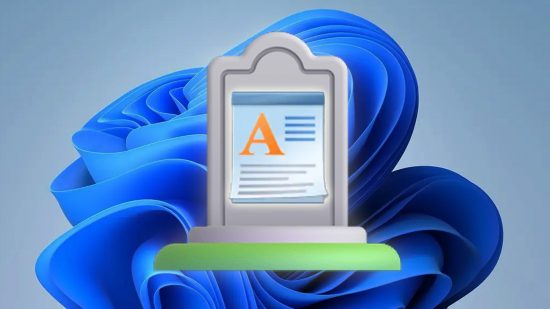Windows 11 has only been out for two years but Microsoft‘s latest operating system has already brought with it a myriad of new benefits and applications to Windows users the world over. With all these new features to worry about, occasionally older applications fall by the wayside, and now it appears as though WordPad is the latest program to get that treatment. Yes, Windows WordPad is soon to be no more.
According to Microsoft, as of this month WordPad is ‘no longer being updated and will be removed in a future release of Windows.’ The news comes from the ‘deprecated features‘ document on Microsoft’s website, which reveals a list of features and applications that are no longer being actively developed or planning on being removed altogether.
WordPad, was originally released as part of Windows 95, and has been a constant feature of Windows operating systems throughout its 30 years of existence. Similarly to Notepad, it allowed for very basic and rudimentary word processing but was a bit more advanced as later versions incorporated a rich-text editor. Although it lacked a lot of features, like a basic spell check, or headers and footers, it’s hard to imagine any version of Windows without it. In its stead, Microsoft recommends using ‘Microsoft Word for rich text documents like .doc and .rft and Windows Notepad for plain text documents like .txt.’
It shouldn’t really come as a surprise that the application will be absent from future versions of Windows, especially with programs like Microsoft Word, and Google Docs being so easily accessible. Although, similarly to how I felt when I first heard that Clippy would be no longer gracing my PC monitor, I can’t help but feel sad over the loss of another piece of nostalgia. WordPad was a great free alternative to other word processors during its lifespan, especially for those who grew up being unable to afford a license to Microsoft Word.
Microsoft hasn’t yet stated exactly when we’re likely to see WordPad removed from all major versions of Windows, though we can speculate it’s likely to be during the next large update. In the meantime, there’s still time to type your goodbyes.
It’s always sad to see old applications go, but if you upgrade to the latest Microsoft OS, you can make use of a whole new range of features that the likes of Windows 11 has to offer. Check out our sister site’s guide on how to install Windows 11, which is still free for all Windows 10 users. If you’re building a PC for the first time, you can always grab a key instead.
